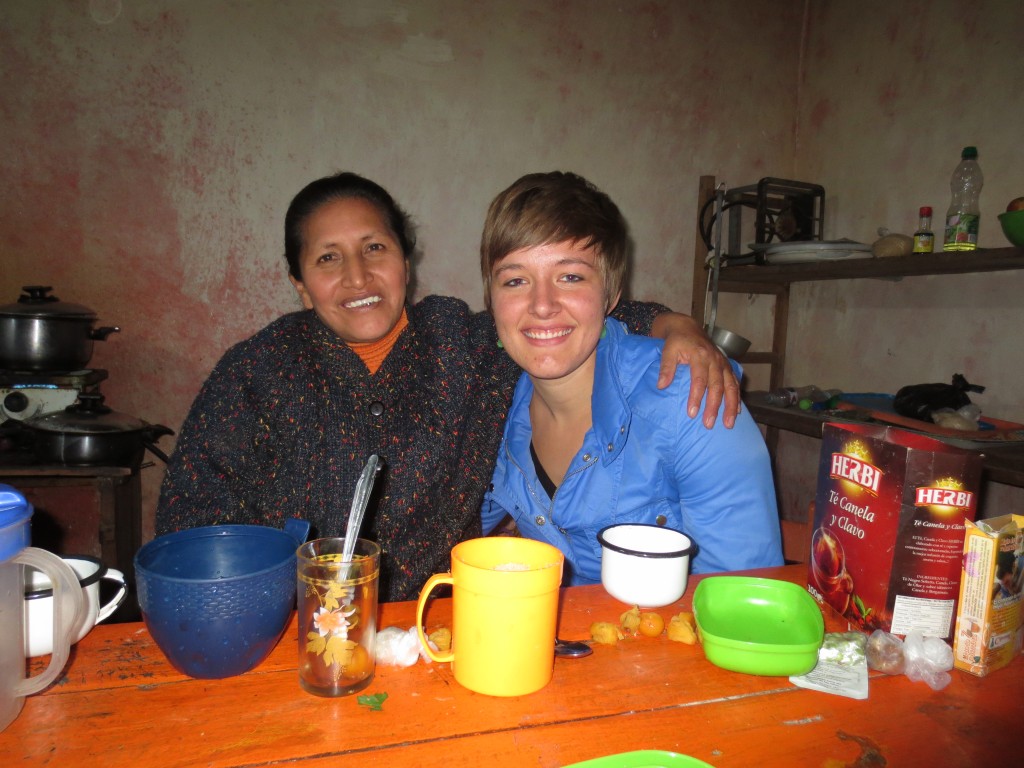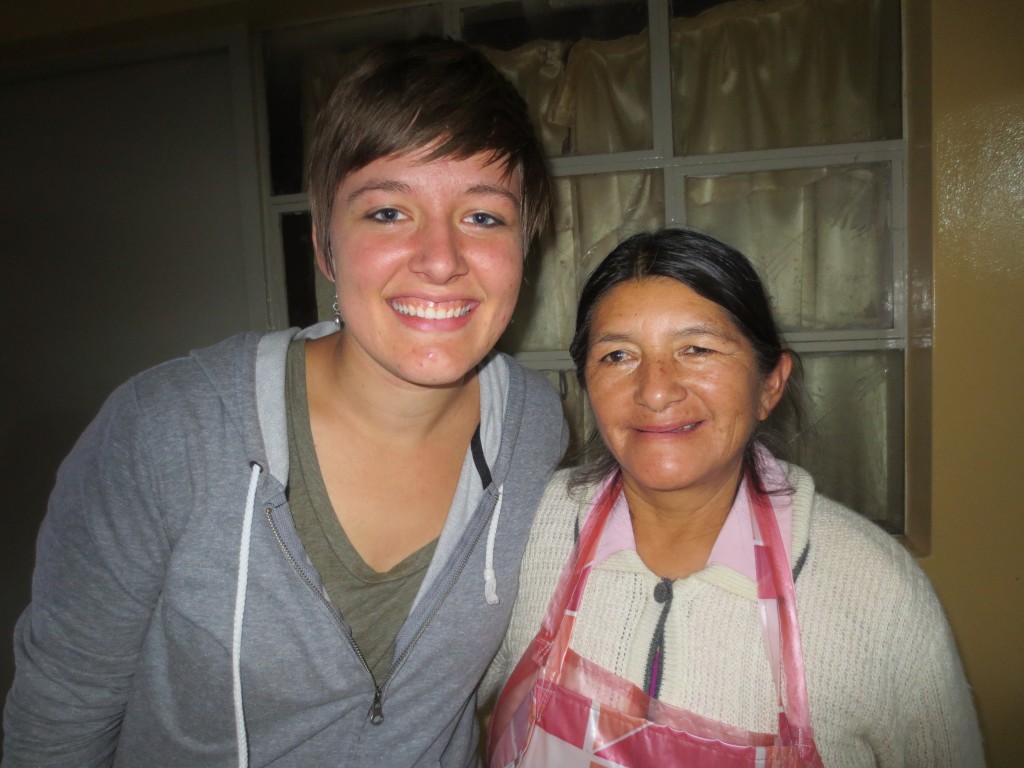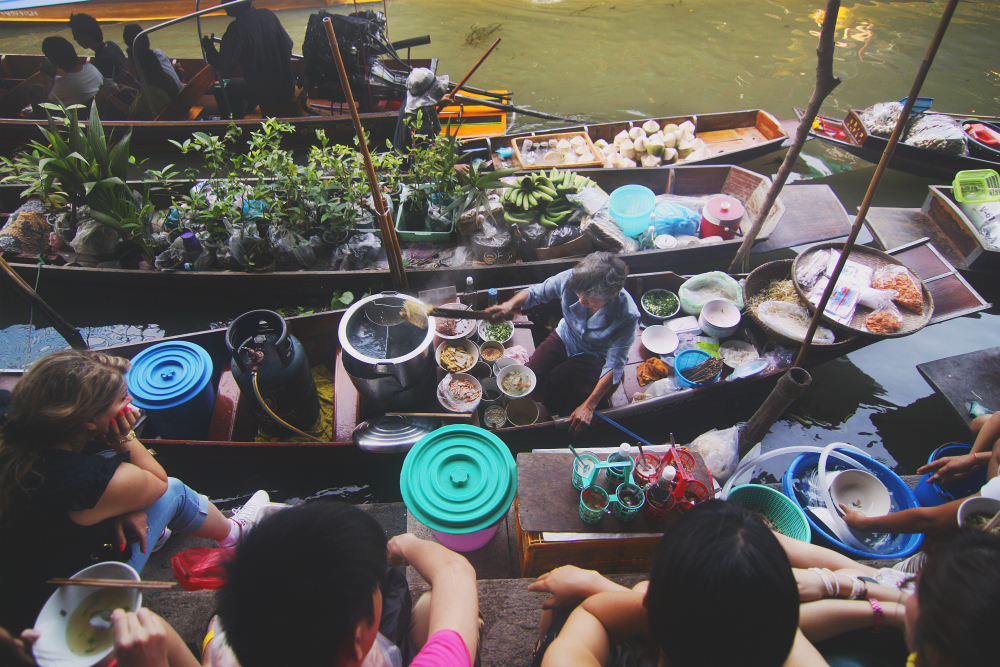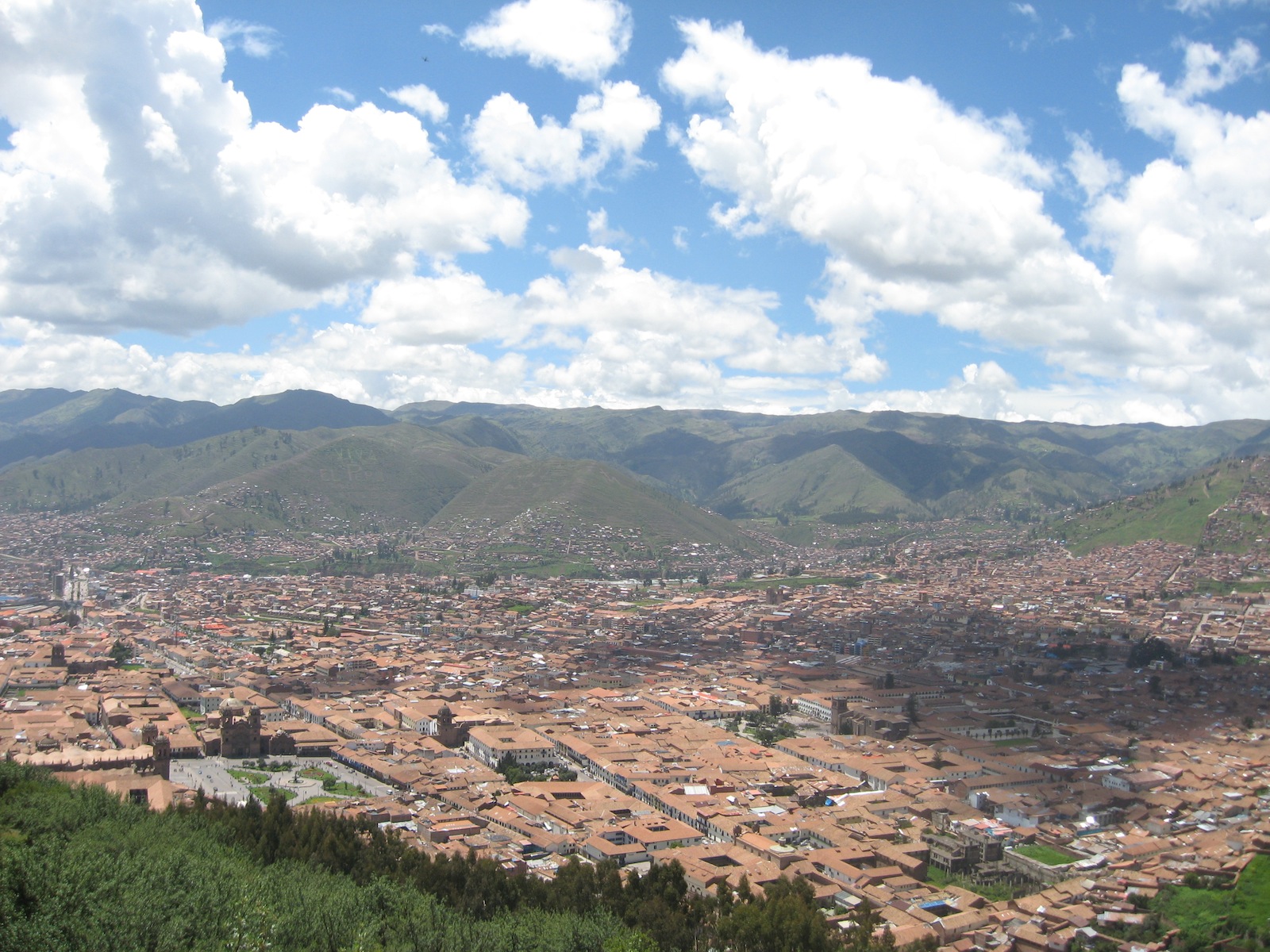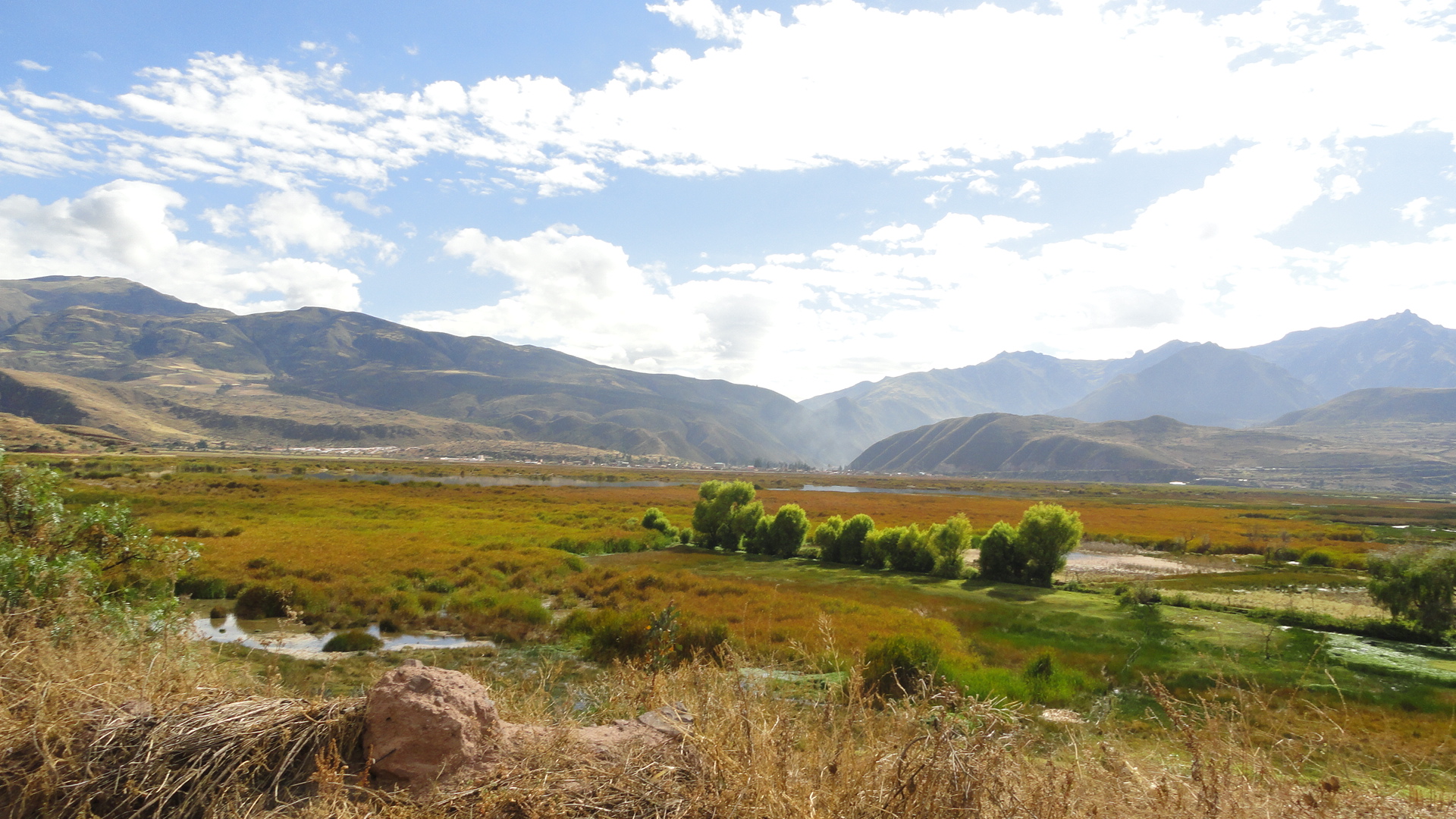Nikita Zook spent six weeks in Ayacucho, Peru during the summer of 2013. As part of her final project, she conducted informal interviews with several women who were part of her daily routine in various ways. She wrote what she had gathered of their stories, trying to capture some of their resilience and strength. Her goal was to describe the value of their ordinary, day to day, past and present experiences, and to do that as honestly as she could, in spite of the language barrier. The following was written to be read out loud or performed as a series of monologues.
I. Luz
My story is very sad, she tells me, shaking her head.
She’s standing in the middle of her tiny kitchen as she says this: sink, two burner gas stove, wooden table, two crowded shelves, several broken appliances. She rummages through a dusty canister that holds small bags of canela, cinnamon, rice, dried things I can’t quite identify.
I was abandoned when I was three months old, she says. I don’t have a family.
I can tell by the way she looks at me, brow furrowed, pushing back dark hair with one hand, that this is a line she’s repeated many times before.
She scans the cluttered table for a knife, finds it, starts peeling a potato.
When I was six, I hid sugar in the ground in a plastic bag. I was buena inteligente, she tells me with a grin, I was smart, it was my secret.
And that’s why you have no teeth! her eleven year old daughter shrieks beside me.
Her lips close together quickly. But then she laughs. It’s true, she’s missing a few bottom teeth. I’ve never noticed that though. When I look at her, it’s her eyes–they light up when she laughs.
She tells me another story. Once she and a friend decided they wanted something to eat, something really good, rico, delicious. So they put cuy, guinea pig, that was still alive, in a pot of boiling water. The cuy tried to escape, of course. And they almost did! she tells me, laughing. And they realized too late that they had forgotten to skin them, they couldn’t even eat them. So they buried them in the backyard. And no one ever found out what they had done.
One time I watch her make papa rellena and the potato sticks to her hands. No importa, she says. It doesn’t matter. And she throws it into the frying pan in a jumbled mess. It will taste the same, she tells me later. Maybe better.
She makes juice for me one morning, mango, and when I tell her that it’s good she looks at me and says, maybe I’ll open a jugaria, sell juice. She throws a few more pieces of mango into the blender and goes into the other room to plug it in. There’s only one outlet in this house.
When she was 16, she left the pueblo, small town, where she was living. She walked through the night with a friend to Ayacucho. I ask her why she decided to leave and she says, why not? She wanted to know what other places were like.
Her first job in Ayacucho involved washing a room full of clothes. She uses exaggerated hand motions to show me how big the piles were. I didn’t enjoy that kind of work at all, she tells me, I only worked there one morning, decided it wasn’t for me.
Instead she borrowed three soles and sold fruit, starting with lemons, adding bananas, oranges, as she expanded.
I would return to that time in my life if I could, she says. I worked all day without resting.
Standing or walking is painful for her now. She doesn’t know why, she tells me. It started a few years ago.
But I need to work, she says, with determination. She takes the bus into town a few mornings each week and sells small plates of potatoes and hard boiled eggs in the market.
II. Jacquelina
I’ve been cleaning here for a year and a half, she tells me. I used to make juice though, she pauses, remembering. I sold it in the market, all kinds: papaya, banana, pineapple. I started doing that when I was only 13. But I stopped because my hands hurt.
She holds them out in front of her as she says this, as if I will be able to see the effect of all those years spent washing, peeling, chopping fruit.
And also, my boys, she continues. I had to work long hours. Didn’t have time to make them dinner. Couldn’t pick them up from school.
She lives with her parents, her husband and her husband’s brother. She mentions them like they are strangers. No es tan bueno. It’s not that good, living there. I want a house of my own someday, she tells me.
When I first meet her, I have to ask three times before I remember her name. She laughs at me the third time I ask. She’s sitting in the kitchen, eating a bowl of soup. You still can’t remember? she says, shaking her head and smiling.
One morning she’s just standing, looking out the window, a bag of trash in each hand. I stop to ask if she’s okay. She says yes, but I ask again, later, verdad? What’s wrong? She looks at me, puts her head down and whispers, there’s no plata, no money. I walked here this morning, she tells me. There was no money for the bus. She works every day except Sunday and still, that is not enough.
I wanted to study to be a nurse, she tells me later. I had to work though, she says, didn’t have time for classes, couldn’t afford it. She pauses, looks at the broom in her hands, and keeps sweeping. She can’t stop to think about what might have been.
III. Victoria
She looks fragile to me when I first meet her. Her hair is parted in the middle, pulled back tightly into a bun; the top of her head barely comes to my shoulder.
But when I go to the market with her one morning, she walks so fast I struggle to keep up, navigating the uneven, narrow path, dodging puddles, dogs, women with babies on their backs. We take a sharp right past the woman selling flowers to the woman selling meat. She talks quickly, bargaining for a fair price.
She wakes up at 4 a.m. every morning to make breakfast, lunch and dinner for 46 children living in an orphanage.
I learn how to chop vegetables into tiny pieces like she does, without using a cutting board. She calls me intelligent.
If you want to learn, you will, she says. That’s what really matters. Wanting to.
She tells me to call her hermana Victoria. Vicki, she says, changing her mind, hermana Vicki.
The thing she wants most is an oven. She tells me this, and then she tells me what God says to her: No te preocupes, hija, don’t worry, child. You will have all you need. She says this to me and I believe her. Her faith is sincere.
One day I ask her about her family. She sits silent for a minute.
I don’t know what to do when she starts crying.
I can’t talk about it. I can’t, she says. She puts her face in her hands. After a minute or so, she tells me. They’re dead, she says quickly, they’re all dead. Terrorism.
She was little when it happened. They came to her pueblo, her small town. I’m the only one left, she says. All my brothers, my parents, they’re all dead.
Later she tells me that I should come to her house for lunch. This Sunday, she says.
She has almost nothing, and at times in her life, she lost almost everything, but still, she gives. She gives what she has.
IV. Gladys
When I walk into the room, the first thing I see are rows of plastic earrings hanging in a glass case on top of a table, displayed for sale, two soles each. My daughter made these, she tells me, a wide smile on her face.
The rest of the room is filled with tables, one for measuring and cutting and three more for different kinds of sewing machines. There are piles of clothes everywhere. Work in progress. There’s also one rack of frilly dresses and suit coats, which can be rented for special occasions.
I wanted to study accounting, she tells me. She regrets not finishing her degree.
But she’s been sewing since she was 14, learning from whoever she was working with at the time. I’ve only had this store for three months or so, she tells me.
One day I bring her several pieces of cloth and she makes them into headbands for me. Another day she fixes my jeans when they rip.
I’m lucky I found you, I say to her, and she just smiles and shakes her head at the compliment, tells me to come back if I need anything else.
She tries to explain the machines to me, pointing at needles, showing me the hem on a jacket, but I don’t understand much. I stand near the door and ask her questions while she works. I don’t think she knows why I’m interested, why I think her tiny little store is important.
She is just trying to survive, holding up the world around her with both hands.
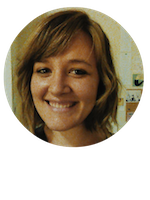 Nikita Zook graduated from Goshen College in 2013 with a degree in social work. She currently works for a nonprofit in Pittsburgh, Pennsylvania.
Nikita Zook graduated from Goshen College in 2013 with a degree in social work. She currently works for a nonprofit in Pittsburgh, Pennsylvania.

